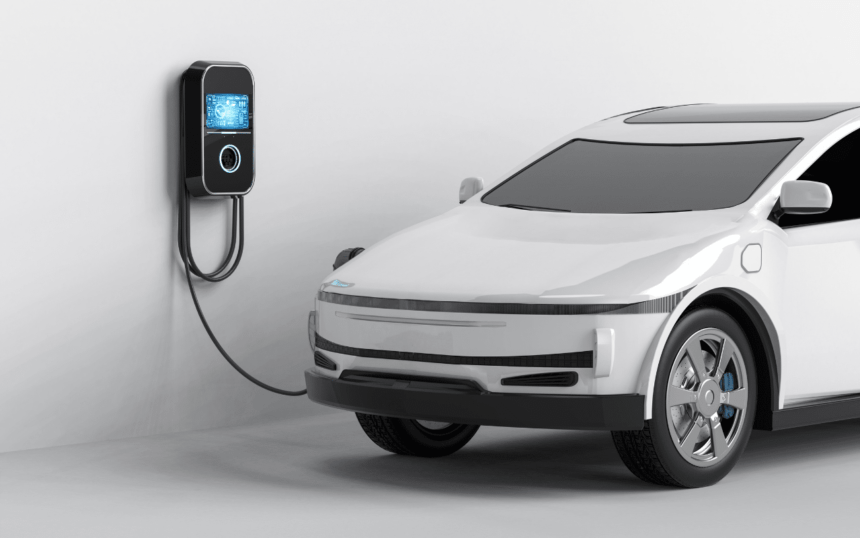The world is on the brink of a major transformation in transportation, with electric vehicles (EVs) leading the charge toward a more sustainable and efficient future. As concerns about climate change and the environmental impact of traditional fossil fuel-powered cars grow, electric vehicles are stepping in as a viable solution that promises not only to reduce emissions but also to provide a more efficient, cost-effective, and enjoyable driving experience.
The Rise of Electric Vehicles
Electric vehicles have been around for more than a century, but it is only in recent decades that they have gained significant momentum. With advancements in technology, government incentives, and a global shift toward sustainability, EVs are becoming more mainstream. As we look toward the future, electric vehicles are expected to play a pivotal role in shaping how we travel, commute, and even live.
What Is an Electric Vehicle?
An electric vehicle (EV) is a car that is powered entirely or partially by electricity. Unlike traditional vehicles, which rely on internal combustion engines (ICE) fueled by gasoline or diesel, EVs use one or more electric motors to drive the wheels. These motors are powered by rechargeable batteries, which can be charged from the electrical grid or through renewable sources like solar panels.
There are two primary types of electric vehicles:
- Battery Electric Vehicles (BEVs): These vehicles run solely on electric power and are recharged by plugging them into an electrical outlet or charging station.
- Plug-in Hybrid Electric Vehicles (PHEVs): These vehicles combine a conventional gasoline or diesel engine with an electric motor, allowing the vehicle to run on either power source.
The Environmental Benefits of Electric Vehicles
One of the biggest advantages of electric vehicles is their positive impact on the environment. As global awareness about climate change and pollution rises, more consumers and businesses are looking for ways to reduce their carbon footprint. EVs are one of the most effective ways to cut down on greenhouse gas emissions and air pollution.
Zero Emissions: Fully electric vehicles produce zero tailpipe emissions, which means they do not release harmful gases like carbon dioxide (CO2), nitrogen oxides (NOx), or particulate matter (PM) into the atmosphere. This contributes to cleaner air and a healthier environment, especially in urban areas where vehicle emissions are a major source of pollution.
Reduction of Greenhouse Gas Emissions: Even though the electricity used to charge EVs may come from a mix of sources, including fossil fuels, the overall lifecycle emissions of EVs are still lower compared to conventional gasoline-powered cars. As the grid becomes greener, with more renewable energy sources like wind and solar, the emissions from EVs will continue to decrease, making them an even more sustainable option in the future.
Energy Efficiency: Electric vehicles are inherently more energy-efficient than internal combustion engine vehicles. An electric motor converts more than 85% of electrical energy into movement, while a gasoline engine only converts around 25% of the energy in gasoline into usable power.
Economic Benefits of Electric Vehicles
While the initial purchase price of an electric vehicle may still be higher than that of a conventional car, the long-term savings are significant. Here are some of the economic benefits of owning an electric vehicle:
- Lower Operating Costs: Electric vehicles have fewer moving parts than traditional vehicles, which translates into lower maintenance costs. There’s no need for oil changes, and components like the brakes tend to last longer due to regenerative braking, which helps slow the vehicle without relying solely on the brake pads.
- Fuel Savings: Charging an EV is typically much cheaper than refueling a gasoline-powered vehicle. According to estimates, the cost to charge an electric vehicle is about 50% less than the cost of gasoline for a conventional vehicle, depending on the region and energy source.
- Government Incentives and Tax Benefits: Many governments around the world offer various incentives to promote the adoption of electric vehicles. These can include tax rebates, grants, and exemptions from certain fees. In some areas, EV owners also benefit from reduced road taxes, tolls, and access to carpool lanes.
Advancements in Electric Vehicle Technology
Electric vehicle technology has made significant strides in recent years. One of the main challenges EVs face is their range — the distance a vehicle can travel on a single charge. However, with innovations in battery technology, EV range is steadily increasing, and charging infrastructure is expanding rapidly.
Battery Improvements: The battery is the heart of an electric vehicle, and manufacturers have been working tirelessly to improve energy density, charging speed, and battery lifespan. Newer battery technologies, such as solid-state batteries and lithium-sulfur batteries, promise to further enhance the range and reduce the overall weight of electric vehicles.
Charging Infrastructure: The expansion of public charging stations is one of the most significant improvements in the electric vehicle landscape. In many countries, fast-charging stations are becoming more widespread, allowing drivers to recharge their vehicles in a matter of minutes, similar to refueling a conventional car. Additionally, home charging stations are increasingly affordable and accessible, allowing EV owners to charge overnight.
Autonomous and Connected Features: Electric vehicles are also at the forefront of autonomous driving technology and connected car features. Many EVs come with advanced driver-assistance systems (ADAS) like lane-keeping assist, adaptive cruise control, and self-parking. These technologies are expected to play a major role in the future of transportation, making driving safer and more efficient.
The Future of Electric Vehicles
The future of electric vehicles looks incredibly promising. With the global shift toward sustainability, many governments and private companies are investing heavily in the development and adoption of EVs. Several major car manufacturers have announced plans to phase out internal combustion engines and focus solely on electric vehicles in the coming decades.
As more affordable electric vehicle options become available and charging infrastructure improves, the widespread adoption of EVs is expected to accelerate. Additionally, the integration of renewable energy sources like solar and wind with electric vehicle charging will help create a fully sustainable transportation ecosystem.
Electric vehicles are poised to become a central part of the future of transportation. They offer a cleaner, more sustainable alternative to traditional vehicles, and as technology continues to improve, EVs will become more efficient, affordable, and accessible. Whether for personal use or as part of a larger fleet, the shift toward electric vehicles is an exciting step toward a greener, more sustainable world.
Why Electric Vehicles Are the Future of Transportation
In conclusion, electric vehicles are not just a passing trend; they are the future of transportation. With their environmental benefits, economic savings, and technological advancements, EVs represent a revolutionary shift toward cleaner, smarter, and more efficient transportation.
As the world embraces this change, we can expect to see electric vehicles playing an increasingly important role in our daily lives, making a significant impact on the planet’s future.
If you’re considering making the switch to an electric vehicle, now is the perfect time to start. With a growing number of options, government incentives, and a future focused on sustainability, the road ahead is clear—electric vehicles are here to stay.

